Love Your Fellow as Yourself
“And you shall love your fellow as yourself.”1
“He commanded us to love one another even as we love ourselves, and that my compassion and love for my fellow (-man) be as my compassion and love for myself with respect to his money, his person, and to whatever he possesses or desires. Whatever I wish for myself, I am to wish likewise for him; and whatever is hateful unto me or to whoever is attached to me, is likewise hateful unto me, with respect to him.” — Rambam (Maimonides)2
The commitment to help another, to give of one’s time and energy, demands an enormous amount of self-sacrifice. It is not easy to tear oneself away from personal pursuits or to break out of the insulated cocoon of one’s own interests. Even more so, the time devoted to others could be used in bettering one’s own position, be it financially, socially, etc. Even in more refined pursuits, a person is involved with his own self. The study of Torah is never-ending; the obligation to raise one’s own spiritual level is unlimited. The time given to help a fellow Jew could easily be devoted to one’s own spiritual growth. Moreover, true involvement with another demands much more than the mere sharing of time or knowledge, but an investment of a part of oneself. True devotion to a fellow Jew means his joy is your joy, his anguish your anguish, and the travails of his soul yours. And it is this devotion which is demanded of us when Torah commands, “You shall love your fellow as yourself.”
But man is egocentric by nature, preoccupied with his own existence. Each person is a separate entity unto himself, with his own drives, goals and nature. How then is it possible to deny one’s own identity to the extent that a separate entity assumes equal importance — to love him as yourself?3
Rabbi Schneur Zalman of Liadi, the founder of Chabad-Lubavitch, gives the answer in his magnum opus of Chassidic philosophy, the Tanya. He first explains that every Jew is composed of two souls. The first is called the nefesh habehamis, the animal soul, and the second, the nefesh haElokis, the G‑dly soul. As explained at length in the first 12 chapters of Tanya, these two souls vie for possession of the thinking mind, and depending upon which is in possession and to what extent, will determine if the person is a tzaddik, one who is righteous, or a rasha, one who is evil.
In the celebrated chapter 32 of Tanya, the Alter Rebbe (as Rabbi Schneur Zalman is popularly known by chassidim) goes on to explain that since the essence of a Jew is his nefesh haElokis, which is described in chapter 2 of Tanya as being a cheilek Elokah mimaal — literally, a “part” of G‑dliness — then therefore, in their source, all souls are indeed one. Thus, according to the Chassidic perspective, the mitzvah of ahavas Yisrael is the directive to focus on the essence of another Jew and see it as one with one’s own essence. To love your fellow as yourself may then be translated in its literal sense.4
In the words of the Alter Rebbe:5
“Acting on the advice mentioned above — to view one’s body with scorn and contempt, and to find joy in the joy of the soul alone — is a direct and easy path6 toward fulfilling the mitzvah, ‘You shall love your fellow as yourself,’ with regard to every Jew both great and small — in spiritual stature.
“Since his body is despised and loathsome, he will not love himself on account of his body more than he loves his fellow; and as for the soul and spirit, the differences between his own soul and that of his fellow surely will not diminish the love between them, for who can know their (the soul and spirit’s) greatness and excellence in their source and root — the living G‑d?
“How then can he claim that his soul is superior to his fellow’s?
“Furthermore, they are actually all equal; and not only equal yet separate, but, furthermore, they all have one father — one source, and within their source they all comprise one entity.7
“It is on account of this common root in the One G‑d that all of Israel are called ‘brothers’ — in the full sense of the word, and not only figuratively, in the sense of ‘relatives’ or ‘similar in appearance’ and the like; only the bodies are distinct from each other.
“This explains how it is at all possible to demand that one love his fellow as he loves himself. Self-love is innate, natural to man; love for one’s fellow is not. How can a generated love match a natural one?
“According to the principle stated here, this is readily understood. One Jew need not create a love for another. The love is an inborn characteristic of his soul, on account of its root in G‑dliness which is common to all souls; it is as natural as the love between brothers.
“Therefore there can be no true love and fraternity between those who regard their bodies as primary and their souls secondary, but only a love based on an external factor.
“Since the body separates us from each other, whereas the soul is that which binds us together, the greater value one places on his body at the expense of his soul, the more conscious he is of the differences between himself and his fellow. These differences require that he create a love for his fellow, and as said above, a created love can never equal a natural, innate love. Therefore love between people who consider their bodies as primarily important, must be only a love based on some external factor, in which case the love is (a) limited to the importance of the motivating factor, and (b) destined to endure only as long as that factor is valid.”
It is therefore clear that from the Chassidic perspective, the mitzvah of ahavas Yisrael is to love a fellow Jew because he is a Jew,8 i.e., because he possesses a G‑dly soul.9
This is the path to the true love of a fellow Jew. When we learn to go beyond the physical, to look past the outer concealments, the true existence of a Jew shines forth. Bodies are separate; souls are one. The physical divides; the spiritual unites. His soul is one with mine, for we all have one Father — and how can I not love my Father’s son? All differences fall away, and Jew is united with Jew, one in their source in the living G‑d.
It follows that one’s love for a fellow Jew must be as great as the love for oneself, for in essence, it is one. This type of love is not based on external factors; it is a love of the Jew at its source with a love that transcends all reason.10 If at any time the concern for one’s own affairs supersedes one’s concern for another, one has not yet attained true ahavas Yisrael.11
One may even go so far as to say that the concern and affairs of another should be greater than one’s own self concern,12 and the pain felt for another’s loss should be greater than one’s own pain, G‑d forbid.13 The reason for this is that for one’s own suffering and pain, G‑d forbid, one may calculate and analyze why one may be deserving of such affliction; however, when it comes to somebody else, one must always look with a favorable eye.14
In order to reach this level of ahavas Yisrael, contemplation is necessary; however, it is only a medium through which one can access an essential love that transcends intellect,15 a natural love (like the love of a father to a son or the love of brothers16 ) which is engraved upon the soul of every Jew.17 Our task is that through avodah (Divine service), we arouse this level of love.
The Esoteric Dimension
Two further points may be added which clarify why ahavas Yisrael is an essential love rather than a love dependent on external factors:
1. Every Jew possesses a deep, hidden love for G‑d.18 Since G‑d loves the Jewish people, it therefore follows that there is a level of ahavas Yisrael that stems from one’s innate love of G‑d.
2. It is well known that all souls are part of one larger soul, that of Adam HaRishon. Since as mentioned above all souls in their source are one, an essence even after it has been subdivided remains and contains the essence.19 It therefore follows that each soul contains within it all other souls.20 The love of one’s fellow is therefore the love of oneself.21
The AriZal writes22 that all the souls of Israel may be viewed as one large body. Just as there are 248 limbs to the body, so, too, there are souls that are the “head” of the body and souls that are the “feet” of the body. Although each soul performs its individual purpose, just as each limb of the body has a specific task, in the final analysis, they are all part of the same body.
It also follows that since all souls constitute one “body,” the performance of a mitzvah by any one limb will be healthy for the entire body.23
How Does One Reach Such a Level?
As mentioned above in Tanya, it is only possible to reach such a level of ahavas Yisrael if one considers one’s body as secondary and one’s soul as primary.24 A person who considers his body as primary and his soul as secondary can never have true ahavas Yisrael, but only a love that is dependent on an external factor — a love called in the Ethics of the Fathers, “a dependent love.”25 Only if the body is truly viewed as secondary to the soul can there be true ahavas Yisrael.26
Moreover, even if a person considers his soul as primary and body secondary but there remain traces of his ego,27 he may still not attain true ahavas Yisrael until his entire ego is nullified28 and his soul is fully revealed:29 only when his own soul is fully revealed is it possible then to feel an essential bond with another.30 Working on one’s ahavas Yisrael actually has the effect of revealing the essence of one’s own soul.31
Unique Qualities
In addition to the revelation of the abovementioned essential bond between every Jew, one must also conduct a thorough search to identify the unique qualities in every individual.32 As stated above, all souls are part of one large body which is the aggregate Jewish soul, and even souls which represent the “head” of that body are complemented by the souls which make up its “feet.”33
For example, while scholars are loved for their Torah knowledge,34 one can only stand back in admiration when one contemplates the pure and simplistic belief of unlearned lay people.35 Each and every individual possesses qualities with which they can make a unique contribution to our nation. If one fails to see the good in another, there is something wrong in one’s outlook.36
Furthermore, searching for the good in others, speaking about their advantages, and praising their unique qualities actually causes those good qualities to be revealed. In addition, highlighting another’s good points creates a vessel in which great Divine blessing will rest, as the Alter Rebbe once said:37 “When a father looks and sees that between his children there is ‘love, fraternity, peace and friendship,’ and each one fills the desire of the other and worries about the well-being of the other — as if it was his own — and between them there are even those who set aside their own worries and instead care for another — then the father is delighted with his children and has much nachas (joy) from them and he works wonders to grant them their requests.”38
Great Rewards
True pursuit of ahavas Yisrael brings great rewards:
1. When one loves a fellow Jew, G‑d loves him. When one does a favor for a fellow Jew, G‑d does a favor for him. When one is mekarev (draws near) another Jew, G‑d is mekarev him.39
“I love you, says G‑d”:40 The love of G‑d for a Jew is comparable to the love for an only son born to his parents in their later years.41 As a reward for doing a favor for another — even if the favor is a material one — G‑d repays the efforts made for His child many times over.42
2. Through the avodah of having mesirus nefesh (self-sacrifice) for ahavas Yisrael, one merits the revelation of the level of “mah”43 in the soul, more than any other avodah in terms of achieving a deep perception of G‑dliness.44 Moreover, one who is void of such mesirus nefesh may, G‑d forbid, lose his “mah.”45 Only he who devotes himself to ahavas Yisrael with mesirus nefesh can be sure of maintaining his level. He himself will remain intact and will also be able to restore the spiritual losses of others.46
Chinuch
The Rebbe stressed on numerous occasions47 the obligation to imbue children with a spirit of ahavas Yisrael, stipulating that boys should associate with boys and girls with girls. Each should make sure that the other is keeping the mitzvos,48 but in all cases, the spirit of kol Yisrael chaverim, “all Israel are friends,” should prevail.















